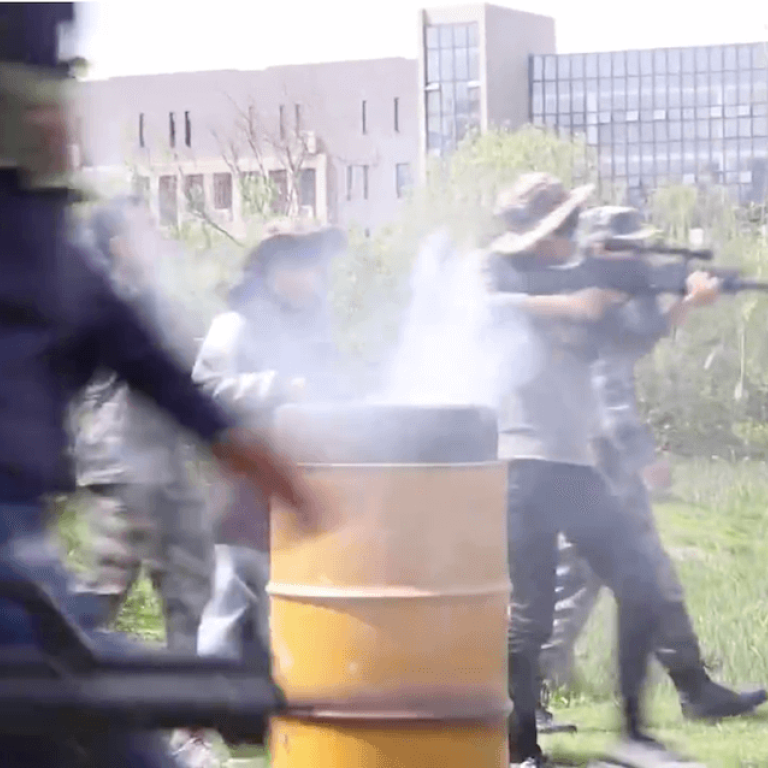
More than 100 students in China take part in a real-life PlayerUnknown’s Battlegrounds tournament
PUBG event designed to encourage military service as China faces recruitment crunch
Playing PlayerUnknown’s Battlegrounds (PUBG) usually involves no more physical movement than twitchy fingers and eyes flicking rapidly across the screen.
But one tournament at a college in China actually made players run around -- with their own legs -- while holding replica assault rifles.
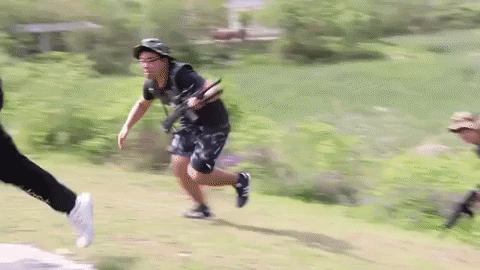
And incredibly, it’s all part of a plan to get more students to join the army.
PUBG -- with players parachuting from a plane to a massive, deserted island to kill everyone else -- may be a hard game to simulate for real. But they did make a decent attempt.
Each round of PUBG begins with 100 players, and sure enough, this college game had around 100 students.
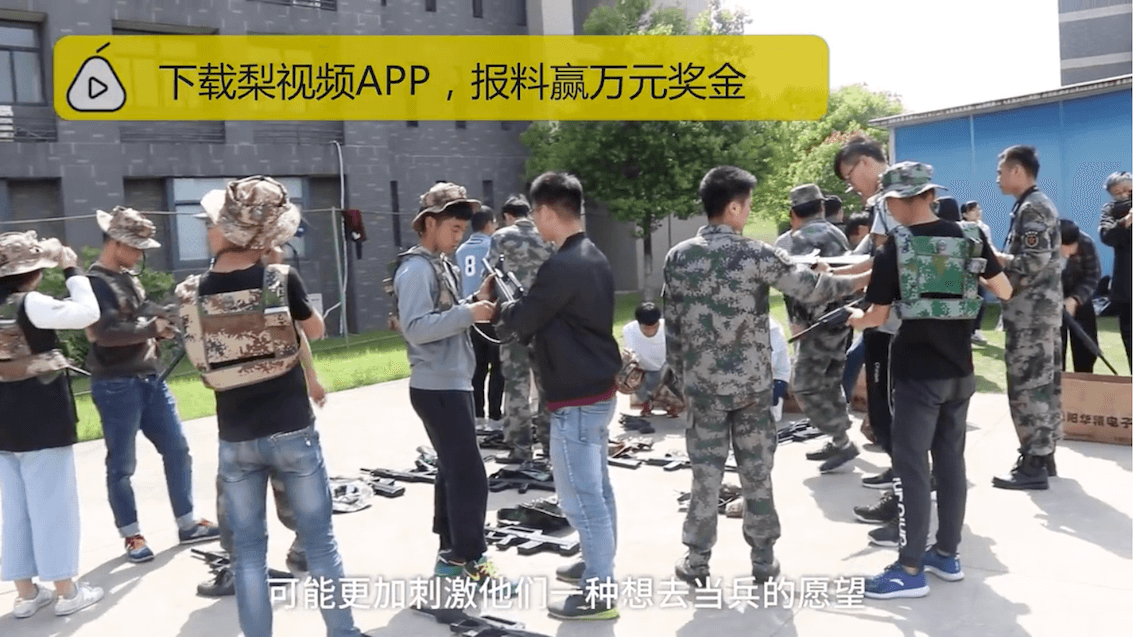
One big difference: In PUBG you have to scavenge for weapons yourself, whether in buildings or by looting the corpses of enemy players. Here, the students were each handed a replica rifle before the game began.
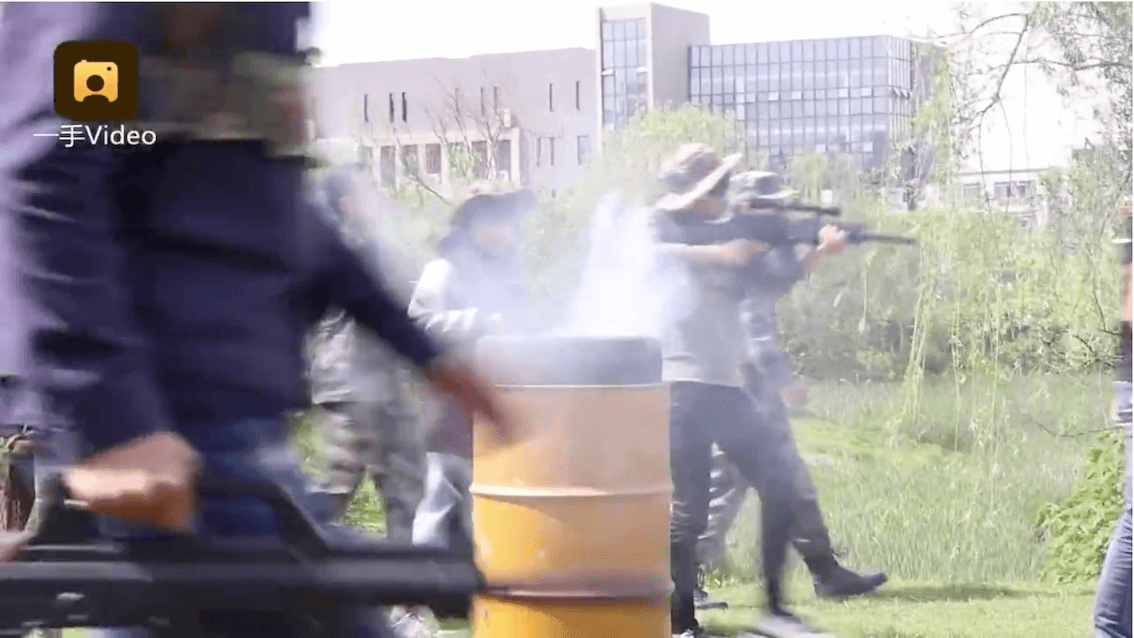
Once the game started, students dashed across the “map” -- a zoned-off area on campus -- fighting to take each other down. The goal was, of course, to become the last person standing.
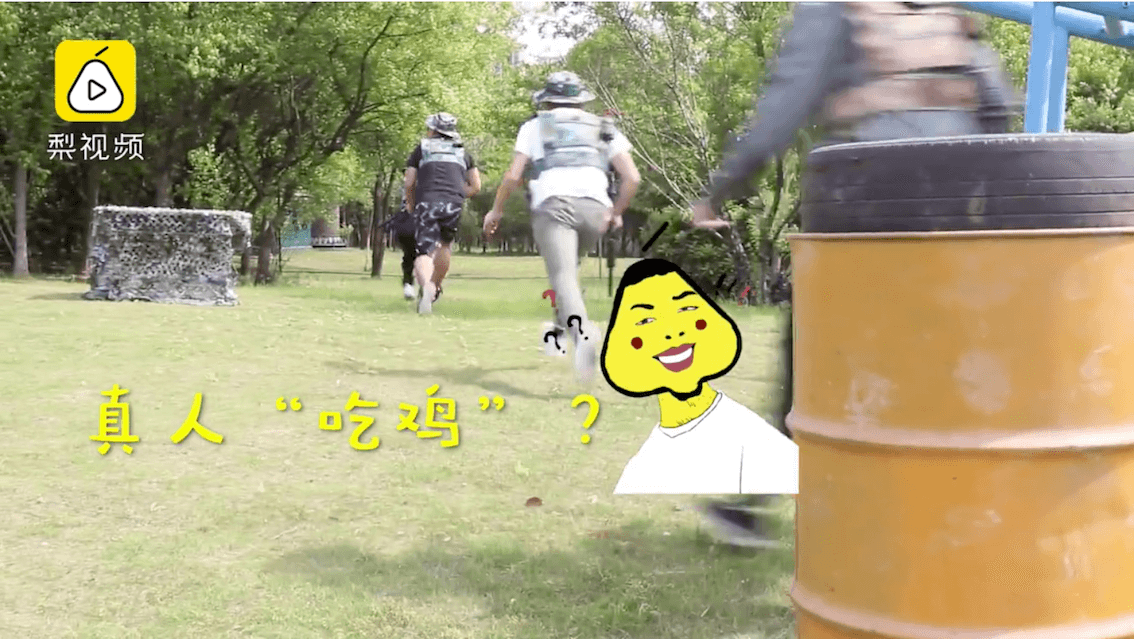
In the game, PUBG players can choose solo games or to play in small squads. Even though this was supposed to be every player for themselves, some apparently decided to team up:
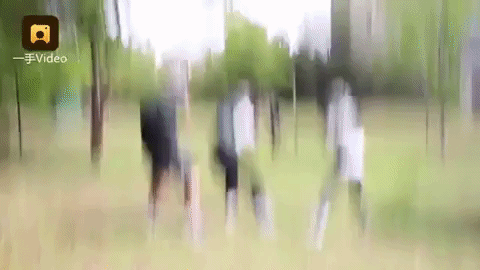
This player thought he found a good hiding spot to wait it. But he was spotted and shot, causing pink smoke to billow out of his vest -- which looks a little like the red smoke of an air drop in PUBG:
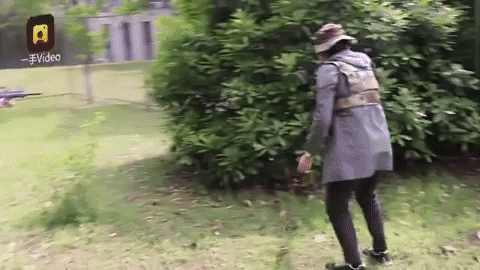
This might all seem like a light-hearted attempt to promote military service in China, but it highlights a much-need push to recruit more college graduates into the ranks.
There’s no word on how many of the college students who tried PUBG in the real world signed up to enlist. But a bigger question is this: Did the winner of real-life PUBG get an actual chicken dinner?
For more insights into China tech, sign up for our tech newsletters, subscribe to our Inside China Tech podcast, and download the comprehensive 2019 China Internet Report. Also roam China Tech City, an award-winning interactive digital map at our sister site Abacus.

